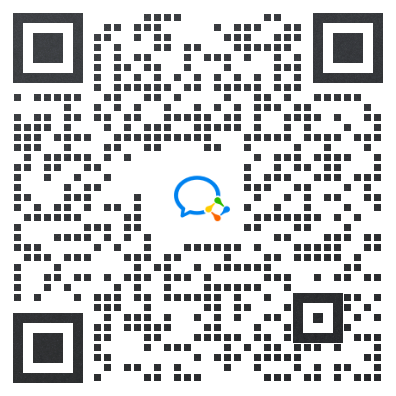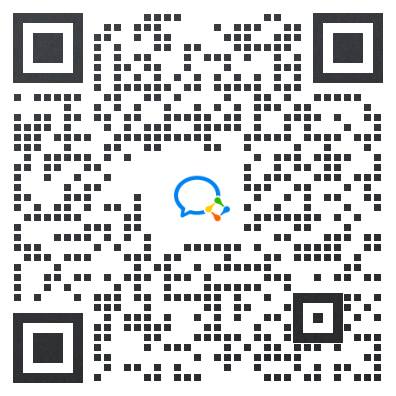选课中心
7099人选课
GRE公开讲座
0元
GMAT公开讲座
0元
一对一体验课
99元
GRE模考网站
10000人
托福TPO模考网站HOT
39209人预约
GRE辅导课程
17537 人
GMAT辅导课程
17537 人
托福辅导课程
17537 人
【定制】1v1
私人订制
资料下载
考前冲刺

扫码关注掌握一手留学资讯
回复XDF免费领
水平测试和备考资料

扫码关注公众号
对于GRE阅读部分,最好的练习资料就是模拟资料。通过模拟练习,可以让大家更好地发现自己在备考中的不足,重点攻克自己的短板内容,有效的提升阅读分数。下面新东方在线GRE频道为大家整理了详细的内容,供大家参考。
Traditionally, the study of history has had fixed boundaries and focal points—periods, countries, dramatic events, and great leaders. It also has had clear and firm notions of scholarly procedure: how one inquires into a historical problem, how one presents and documents one's findings, what constitutes admissible and adequate proof.
Anyone who has followed recent historical literature can testify to the revolution that is taking place in historical studies. The currently fashionable subjects come directly from the sociology catalog: childhood, work, leisure. The new subjects are accompanied by new methods. Where history once was primarily narrative, it is now entirely analytic. The old questions "What happened?" and "How did it happen?" have given way to the question "Why did it happen?" Prominent among the methods used to answer the question "Why" is psychoanalysis, and its use has given rise to psychohistory.
Psychohistory does not merely use psychological explanations in historical contexts. Historians have always used such explanations when they were appropriate and when there was sufficient evidence for them. But this pragmatic use of psychology is not what psychohisto-rians intend. They are committed, not just to psychology in general, but to Freudian psychoanalysis. This commitment precludes a commitment to history as historians have always understood it. Psychohistory derives its "facts" not from history, the detailed records of events and their consequences, but from psychoanalysis of the individuals who made history, and deduces its theories not from this or that instance in their lives, but from a view of human nature that transcends history. It denies the basic criterion of historical evidence: that evidence be publicly accessible to, and therefore assessable by, all historians. And it violates the basic tenet of historical method: that be alert to the negative instances that would refute their theses. Psychohistorians, convinced of the absolute rightness of their own theories, are also convinced that theirs is the "deepest" explanation of any event, that other explanations fall short of the truth.
Psychohistory is not content to violate the discipline of history (in the sense of the proper mode of studying and writing about the past); it also violates the past itself. It denies to the past an integrity and will of its own, in which people acted out of a variety of motives and in which events had a multiplicity of causes and effects. It imposes upon the past the same determinism that it imposes upon the present, thus robbing people and events of their individuality and of their complexity. Instead of respecting the particularity of the past, it assimilates all events, past and present, into a single deterministic schema that is presumed to be true at all times and in all circumstances.

 资料下载
资料下载
GRE佛脚2024增补包含最新热词与六选二整理
发布时间:2022-06-06添加新东方在线美研助教号
回复【资料】获取
GRE-PPO模考完整套题+解析资料下载
发布时间:2022-06-06添加新东方在线美研助教号
回复【资料】获取
GRE佛脚词汇表网络版资料下载
发布时间:2022-05-21添加新东方在线美研助教号
回复【资料】获取
2024GRE佛脚填空机经系列资料下载
发布时间:2022-04-15添加新东方在线美研助教号
回复【资料】获取
2024GRE佛脚阅读系列资料下载
发布时间:2022-04-15添加新东方在线美研助教号
回复【资料】获取
2024杨鹏阅读难句(GMAT+GRE)教程资料下载
发布时间:2022-04-15添加新东方在线美研助教号
回复【资料】获取
GRE PPO模考完整练习题(答案)
发布时间:2019-12-10添加新东方在线美研助教号
回复【资料】获取
GRE写作题库解析【Issue/Argument】
发布时间:2019-12-10添加新东方在线美研助教号
回复【资料】获取
GRE阅读机经及官方真题资料练习
发布时间:2019-12-10关注新东方在线美研订阅号
回复【GRE】获取
GRE填空机经佛脚系列资料持续更新…
发布时间:2019-12-10添加新东方在线美研助教号
回复【资料】获取
GRE佛脚词汇修订版PDF电子版下载
发布时间:2019-12-10添加新东方在线美研助教号
回复【资料】获取
【提升英语必看】英语记录片/演讲/美剧合集
发布时间:2019-11-27添加新东方在线美研助教号
回复【资料】获取
《华尔街日报》、《纽约时报》英文报刊合集
发布时间:2019-11-27添加新东方在线美研助教号
回复【资料】获取
【必看】美国研究生申请注意事项
发布时间:2019-11-27添加新东方在线美研助教号
回复【资料】获取
美国研究生录取分数&截止日期信息汇总
发布时间:2019-11-27添加新东方在线美研助教号
回复【资料】获取
2020美国研究生热门专业院校排名
发布时间:2019-11-27添加新东方在线美研助教号
回复【资料】获取
GRE模考套题、机经汇总
发布时间:2019-11-27添加新东方在线美研助教号
回复【资料】获取

添加美研助教号,
回复【GRE】获取备考必看资料包

 推荐阅读
推荐阅读
备考GRE,对大部分同学来说也是一个新挑战,尤其是阅读部分,如何在有限的时间内大幅提高阅读速度呢? 快来本文看看吧。
本文今天为大家带来的是gre考试中easy等级难度的阅读片段,一起来看看吧!
2022年3月13-19日GRE阅读题回忆及答案(六)来啦,来本文和新东方在线GRE一起来看看详细信息吧。
2022年3月13-19日GRE阅读题回忆及答案(五)来啦,来本文和新东方在线GRE一起来看看详细信息吧。
2022年3月13-19日GRE阅读题回忆及答案(四)来啦,来本文和新东方在线GRE一起来看看详细信息吧。
2022年3月13-19日GRE阅读题回忆及答案(三)来啦,来本文和新东方在线GRE一起来看看详细信息吧。
2022年3月13-19日GRE阅读题回忆及答案(二)来啦,来本文和新东方在线GRE一起来看看详细信息吧。
2022年3月13-19日GRE阅读题回忆及答案(一)来啦,来本文和新东方在线GRE一起来看看详细信息吧。
2022年2月13日GRE阅读题回忆及答案来啦,来本文和新东方在线GRE一起来看看详细信息吧。
2022年2月13日GRE阅读题回忆及答案来啦,来本文和新东方在线GRE一起来看看详细信息吧。


 GRE录播课(全科班/单项班)
GRE录播课(全科班/单项班)
 GMAT6-8人直播VIP小班
GMAT6-8人直播VIP小班
 托福直播精讲班(30天/60天)
托福直播精讲班(30天/60天)
添加美研助教号,
回复【GRE】获取备考必看资料包

 资料下载
资料下载
添加新东方在线美研助教号
回复【资料】获取
添加新东方在线美研助教号
回复【资料】获取
添加新东方在线美研助教号
回复【资料】获取
添加新东方在线美研助教号
回复【资料】获取
添加新东方在线美研助教号
回复【资料】获取
添加新东方在线美研助教号
回复【资料】获取
添加新东方在线美研助教号
回复【资料】获取
添加新东方在线美研助教号
回复【资料】获取
关注新东方在线美研订阅号
回复【GRE】获取
添加新东方在线美研助教号
回复【资料】获取
添加新东方在线美研助教号
回复【资料】获取
添加新东方在线美研助教号
回复【资料】获取
添加新东方在线美研助教号
回复【资料】获取
添加新东方在线美研助教号
回复【资料】获取
添加新东方在线美研助教号
回复【资料】获取
添加新东方在线美研助教号
回复【资料】获取
添加新东方在线美研助教号
回复【资料】获取

 阅读排行榜
阅读排行榜
 相关内容
相关内容